Free delivery on all orders over £45
Free delivery on all orders over £45
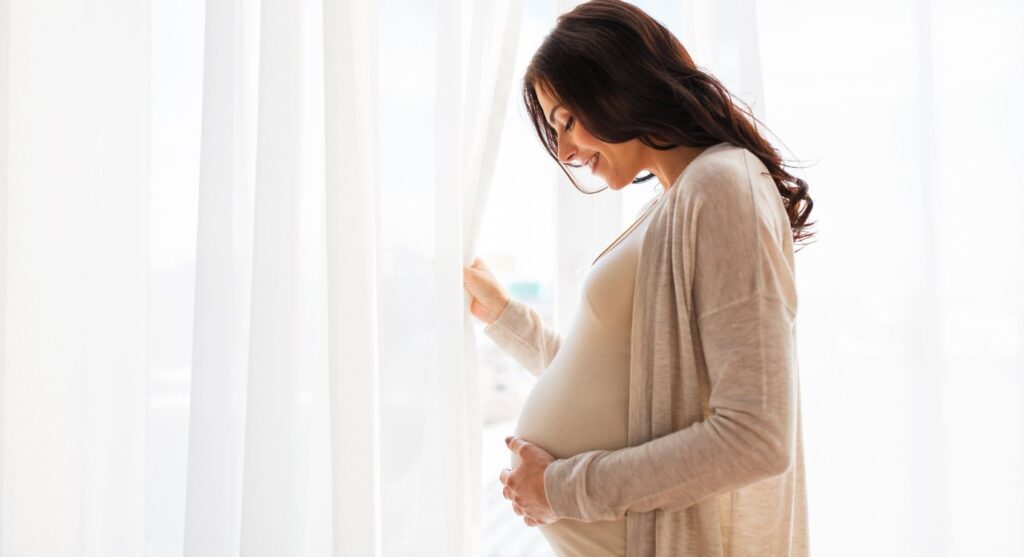
Medically reviewed by
First things first: while CBD is generally well tolerated by the average person, there isn’t enough clinical evidence to determine whether it is safe to use CBD oil in pregnancy.
This topic: using CBD oil in pregnancy, when trying to conceive, or when breastfeeding – is complex and can be controversial.
But no fear – we’re here to unpick the nitty-gritty around CBD and pregnancy.
In this article, we’ll cover:
This article is a must-read for pregnant ladies and their partners, so let’s dive in…
Let’s start at the beginning.
CBD – short for cannabidiol – is one of many cannabinoids which can be extracted from industrial hemp plants, otherwise known as low-THC cannabis plants.
To summarise, the key distinction between CBD and cannabis is that CBD is the product of the extraction of just one cannabinoid from this multifaceted plant – Cannabis Sativa L.
As CBD products don’t contain any THC, they don’t get you ‘high’.
Read more: CBD vs THC
So, what exactly does CBD do?
CBD supports the functioning of the endocannabinoid system (ECS), a vast network of chemical signals and cellular receptors that are densely packed throughout our brains and body.
The ECS is responsible for maintaining a state of homeostasis, or balance, in both humans and also some animals. It supports a range of bodily functions, including appetite, metabolism, pain response, immune response, mood and sleep patterns.
What does this have to do with CBD?
CBD supports the endocannabinoid system by inhibiting the release of an enzyme that breaks down the endocannabinoids produced in our bodies.
While scientists still don’t know exactly how cannabinoids interact with our ECS, we know that when more endocannabinoids are available, the ECS system works more efficiently, boosting overall health.
So, now that we know how CBD works, let’s take a closer look at the relationship between CBD and pregnancy.
10% off on your first order
Complete this one-minute quiz and find the right products for you.
While it may be tempting to use CBD oil during pregnancy, there’s simply not enough research to determine whether the substance may harm an unborn baby.
In the absence of information, we’d always sit on the side of caution and recommend that expectant mothers avoid CBD during pregnancy.
Can CBD directly impact a foetus?
While there’s no definitive research on the subject, there’s some indication that CBD can reach the placenta.
For example, when adults ingest CBD oil drops sublingually, the cannabinoid passes directly into the bloodstream. Since the mother shares a blood supply with the infant through the placenta, we can assume that CBD may have the potential to affect an unborn baby directly.
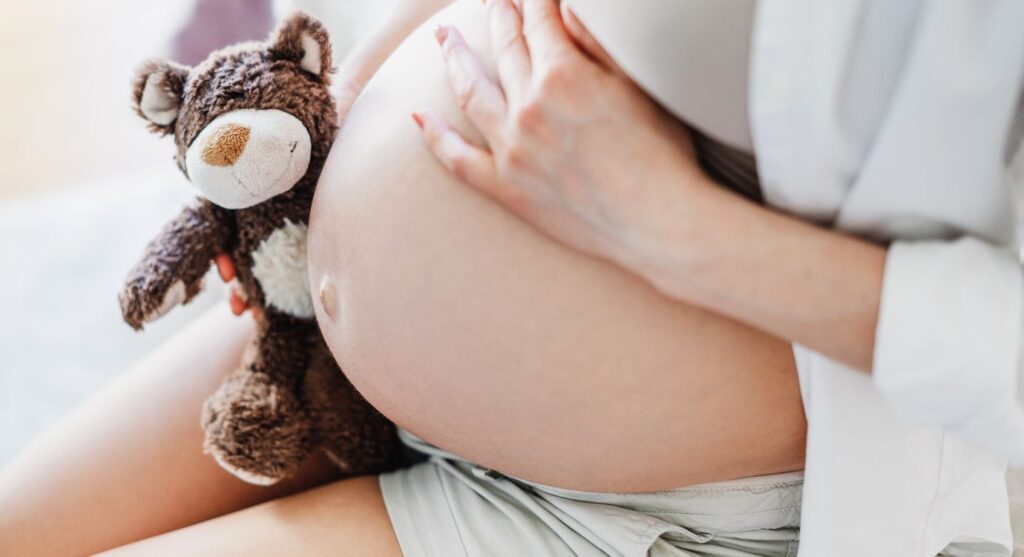
In short – no.
CBD products are not advised for pregnant or breastfeeding women. This is because we don’t yet know the impact cannabinoids could have on a child’s development.
At present, we only have details from studies that looked into the use of CBD on pregnant mice.
So what happened to the mice?
The research in question found that mice suffered adverse effects when given CBD during pregnancy. The CBD had a lasting impact on their offspring, even into adulthood.
What does this mean for humans?
Well, it might mean something, but then again, it absolutely might not: it’s difficult to extrapolate data across different species with any type of certainty.
As there have been no human trials investigating CBD and pregnancy, it’s difficult to determine the safety and efficacy of CBD in this respect.
Can CBD harm my chances of conceiving? Will it impact my fertility? Could it help me get pregnant?
We realise we’re a bit of a stuck record at this point, but the truth is that we don’t know the impact CBD might have on the human reproductive system.
Again, we have some insight into how CBD impacts fertility in mice.
One study found that anandamide inhibited the development of an embryo in mice. CBD is thought to boost anandamide levels by inhibiting the production of an enzyme that breaks it down after use.
Similar results were also found when scientists researched embryo development in chicks: one study found that exposure to plant-derived or synthetic cannabinoids during the early development of chick embryos was found to decrease their viability.
This has led some to suggest that people should also avoid using CBD while trying to conceive – advice that doctors and medical professionals tend to mirror.
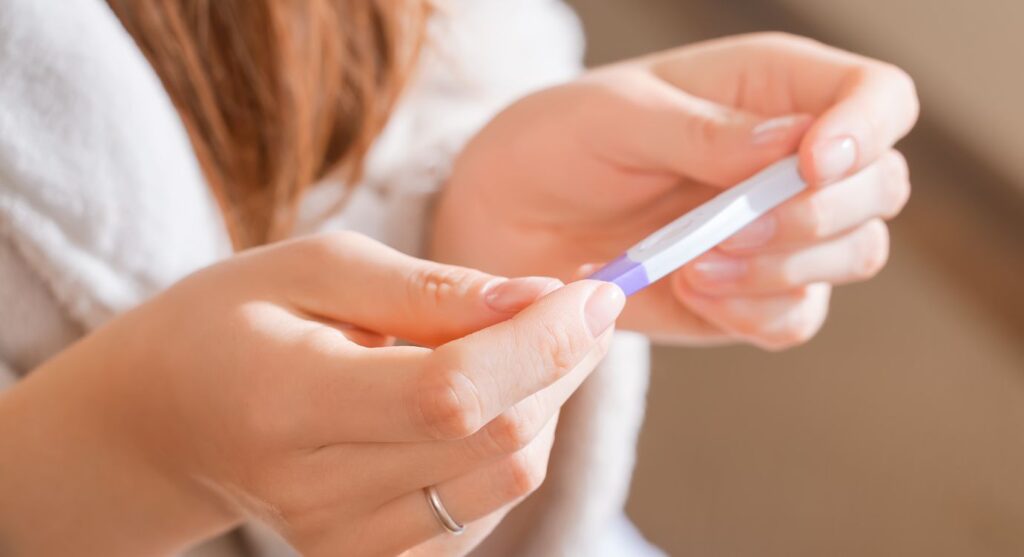
While some people turn to CBD to help manage nausea, it is not recommended for treating morning sickness due to concerns about the safety of both mother and baby.
The Food Standards Agency – responsible for regulating CBD in the UK – has recently updated its guidelines around CBD and breastfeeding, stating that breastfeeding mothers shouldn’t consume CBD products.
This is due to the fact that research on mice suggest that CBD may be damaging to a Childs development.
And while most research focuses on the dangers of consuming THC while breastfeeding, research published in the journal Pediatrics found that low levels of both THC and CBD may be found in breast milk for up to six days after maternal cannabis use.
As such, we’d advise not to ingest any cannabinoids, including CBD, while breastfeeding.
Read more: How long does CBD stay in your system?
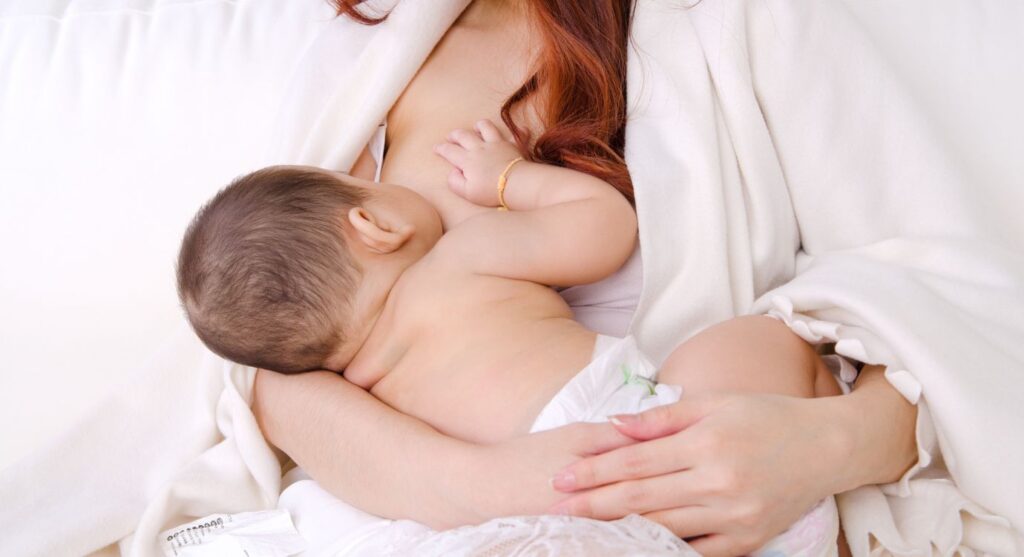
“What about my favourite CBD moisturiser? Can I still use CBD oil for healthy, glowing skin?”
Ok, so the answer to this isn’t a resounding ‘no’.
Admittedly we’re celebrating the small wins here because we’re not quite saying ‘yes’ either.
Animal studies have shown that a CBD transdermal gel is capable of making its way into the bloodstream.
However, a transdermal gel is different from your typical CBD face cream. It’s worth checking if your skin creams contain CBD (cannabidiol) or just hemp seed oil. If it only contains hemp seed oil, you can likely continue using it during pregnancy.
If you have any concerns, you should speak to a medical professional or reach out to your favourite skincare brand and check their advice on pregnancy use.
Read more: Hemp oil vs CBD oil
“If I can’t have CBD while pregnant, what can I have?!” – We hear you.
When looking for CBD alternatives, we’d advise you to focus on getting the right vitamins and minerals and taking a supplement specifically designed for pregnancy.
It’s also important to focus on eating a healthy, varied diet filled with whole foods to support your immune system.
Finally, regular exercise is a great way to take control of your health throughout pregnancy. Low-impact exercise like swimming or yoga is great for getting in some cardio and maintaining flexibility.
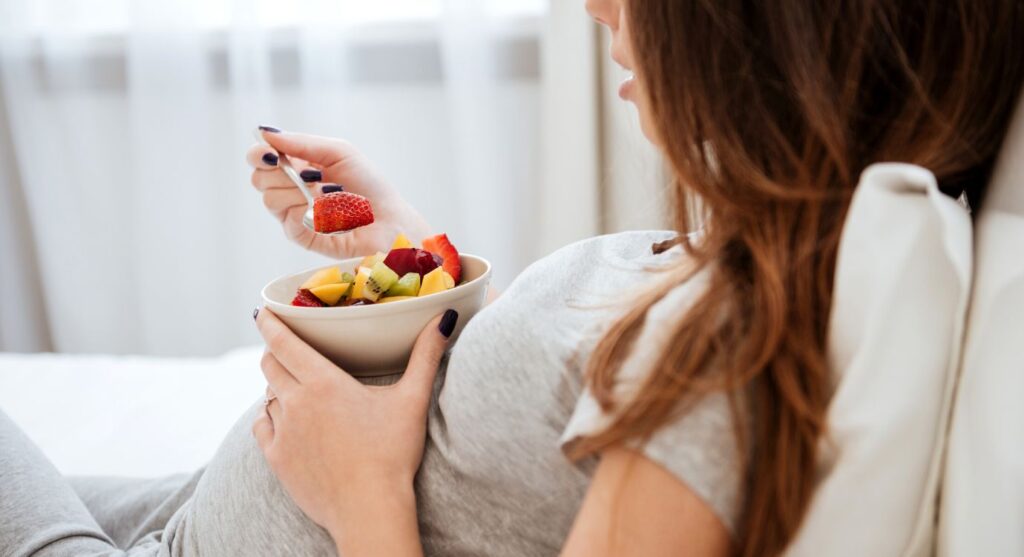
With pregnancy, breastfeeding and conceiving, it’s always best to make the safest choice.
It’s not just cannabinoids that pregnant and breastfeeding women are advised to avoid – everyday foods such as blue cheese, shellfish, and caffeine are also off the list.
This doesn’t mean these products are otherwise unsafe – it simply means that foetuses and newborn babies are much more vulnerable than adults, and extra precautions should always be taken.
As always, if you are considering taking CBD oil for any reason, always speak to a medical professional first.
Sign up for the Evopure newsletter:
This product is not for use by or sale to persons under the age of 18. It should not be used if you are pregnant or nursing. Consult with a physician before use if you have a serious medical condition or use prescription medications. A Doctor’s advice should be sought before using this and any supplemental dietary product. This product is not intended to diagnose, treat, cure or prevent any disease.
© Evopure Ltd. All rights reserved Terms & Conditions Cookie Policy Sitemap